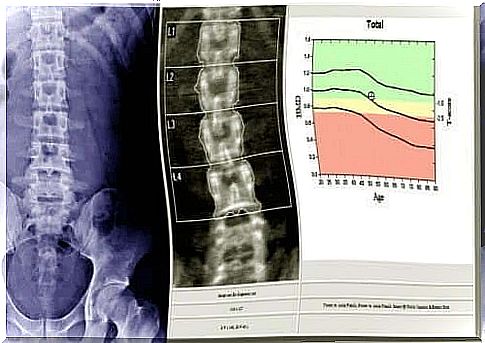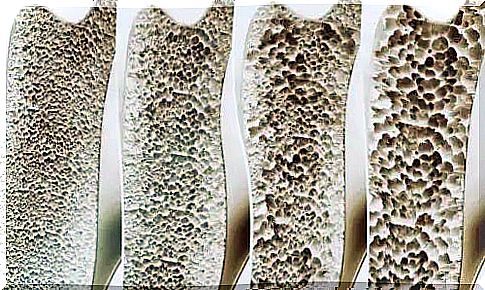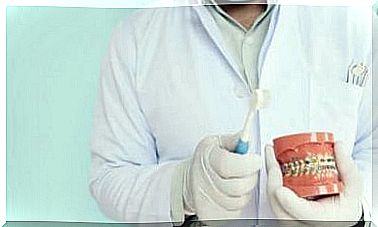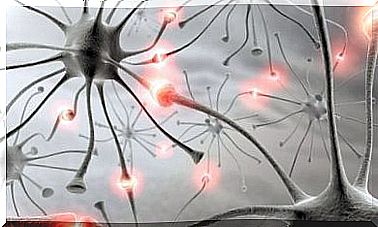What Is Bone Densiometry?

What is bone densiometry? A bone densiometry is a test widely used to determine the mineral density of bones and to find out if they have been damaged.
This procedure is also known as dual energy X-ray absorption. This is because it is similar to a normal X-ray. It is especially useful for diagnosing and monitoring the progression of osteoporosis.
It is a simple test usually prescribed to older women. But this is not his only indication. In this article, we will explain everything you need to know about bone densiometry, the procedure and how doctors interpret its results.
What is bone densiometry and how is it performed?
Bone densiometry (known by the acronym DEXA or DXA) is a test to determine bone mineral density. It helps doctors determine if there has been a loss of integrity or mineralization of bone tissue.
According to an article in RadiologyInfo.org, it uses a low dose of ionizing radiation. This makes it possible to obtain images of the bones. The test is fast, simple and non-invasive.
It usually focuses on the bones of the hip, spine and forearm. However, it can also examine other parts, such as the heels, toes or joints.
The imaging technologist is in charge of carrying out the procedure. The doctor then analyzes the results. Its main role is to assess the patient’s risk of developing fractures associated with osteoporosis.
Doctors also use it to determine if a patient needs treatment for osteoporosis. It is also suitable for monitoring the effects of the treatment itself. Bone densiometry results should improve over time if treatment works.
In addition, the radiation used for bone densiometry does not affect the patient. Moreover, they do not lead to side effects, although they are not always indicated. For example, there is a certain contraindication for pregnant women.

Why take this test?
Bone densiometry can determine if there is a loss of bone density. This can be due to many factors, but loss of density certainly increases the risk of suffering a fracture.
For this reason, the test is useful for estimating the risk of fracture. This procedure is indicated for postmenopausal women, according to an article published by the Centro Diagnóstico de Granada, especially for those with severe symptoms who do not follow any hormonal treatment.
Menopause is one of the main risk factors for osteoporosis. In fact, bone densiometry is even more necessary if the woman is or has been a smoker.
This test is also ideal for people taking certain medications that affect the bones, such as corticosteroids. Hyperparathyroidism is another indication. It is a pathology that consists of increased secretion of parathyroid hormone (PTH). This hormone is responsible for regulating the metabolism of calcium and phosphorus. These are two of the most important minerals in bone structure and density. Thus, having a family or personal history of hip or spine fractures is another reason to take the test.
How to prepare for a bone densiometry test
Bone densiometry is a simple test that does not require prior training. It does not cause discomfort and does not require much time. The Universidad de Navarra Clinic says the test lasts about half an hour.
Ideally, you should wear comfortable clothes and leave any accessories or jewelry at home. You must remove any metal objects before the test and stand still during the procedure.
You can normally eat the day before the test. However, you should stop taking calcium supplements 24 hours in advance.
As mentioned above, this procedure is not a good idea for pregnant women. It is essential to tell your doctor if you have a chance of becoming pregnant. Also tell your doctor if you have recently had a contrast test, such as a CT scan.
What can the results of this test indicate?

What else is important to know about bone densiometry?
You should inform your doctor about all medicines and dietary supplements you take before the procedure. You don’t have to fast, but you have to go at least a day without taking calcium. In addition to jewelry and metal objects, it will be necessary to remove glasses and prostheses.
You have to keep in mind that bone densiometry cannot predict who will have a fracture. However, it provides guidance on the relative risk of the patient.
Analysis of the spine or hip is useful to verify the response to treatment. However, those performed on the heels or wrists are not useful for this purpose. They are effective only in predicting the risk of fracture.
A bone densiometry is a simple harmless test
This type of test makes it possible to study bone mineral density because it uses X-rays. It helps you check for an osteoporosis problem and even monitors its treatment.
Due to bone densiometry, we can predict the risk of fracture of any person. This is why, in addition to being safe and simple, doctors use it regularly nowadays.









